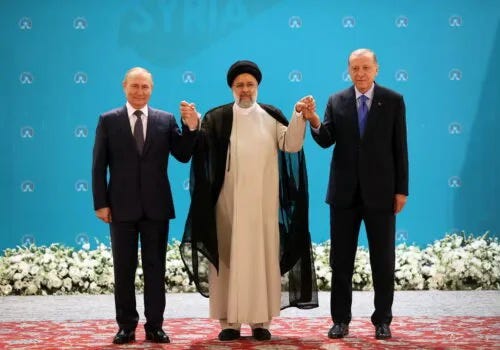American Contradictions
Diminished US hopes Türkiye can cover withdrawal from Iraq & Syria, Huawei no longer needs Qualcomm chips, Yellen Contradictions: US industrial subsidies good, China's industrial subsidies bad.
Diminished US hopes Türkiye can cover withdrawal from Iraq and Syria
By Doga Unlu (Atlantic Council)
The United States is under pressure to leave the Middle East for good. US forces are increasingly attacked in Iraq and Syria as anti-US criticism grows. However, US troops are a long way from returning home, especially amid the tit-for-tat between Iran and…





